-
•
•
50 responses
To me, ldsblogs.org is the bloggernacle. When I have a spare minute, I usually head over there to see what’s new at FPR, FMH, Keepa, The Exponent, or any of my other favorite Mormon blog spots. I know a lot of your names, and though I haven’t met any of my fellow bloggernaclers in person, I feel comfortable here with you. It’s that comfortableness that got me thinking about how the bloggernacle has grown and developed, and what it’s future trajectory is. I’m comfortable here because I know the people here, and whenever I get comfortable I have to ask,… Read More
-
•
•
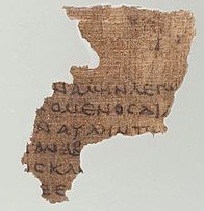
Matthew 3 Verses 1-2: What function did the herald of a king serve in ancient times? Why did kings need heralds? Is John the herald of a king? Why does this King need a herald? Compare John’s message to Jesus’s message in Matthew 4:17. Why do you think Matthew uses almost exactly the same words in each case? What is he teaching? Given Matthew’s focus on Jesus’ royal birth, how are we to understand “the kingdom of heaven is at hand”? How many ways can you think of understanding that the kingdom of heaven is soon to come or is… Read More
-
•
•
8 responses

Say someone asks if you know the time. You say yes and then look at your watch. Did you really know the time? Say someone asks you how to get downtown to the museum. You say yes. They ask you to write down directions. You can’t, but you offer to drive them there instead. If you can see the landmarks, then you’ll know where to turn. Did you really know how to get there? Say that, walking past a bakery, you’re struck by the smell of a pastry and then vividly recall a time when, six years-old, you made those same rolls… Read More
-
•
•
86 responses
So this column was definitely the digital equivalent of kicking over an anthill. Read More
-
•
•
21 responses

Times and Seasons has selected Elizabeth Smart as Mormon of the Year for 2010. Elizabeth Smart has been in the public eye this year in the United States and around the world as the chief witness in the trial of Brian David Mitchell, who abducted her in 2002. And her testimony gave her significant influence, despite her apparent distance from the spotlight while serving on an LDS mission during 2010. In her testimony, Smart showed a poise and decorum that is rarely found among private individuals thrust into the public spotlight. Central to Smart’s impact is her religion. Mormonism was… Read More
-
•
•
22 responses
There is enormous potential for intellectual life and intellectual culture within Mormonism. What can we do to bring this potential to fruition? What we see actually happening today are only tiny sprouts by comparison with what is possible, and what we must bring into being if the gospel is to fulfill its purpose as the organizing principle of a Zion society. How do we get from the minimal present state to where we need to go? This is the first of a series of posts considering the challenges Mormon intellectual culture faces, and ways these challenges might be overcome. I… Read More
-
•
•
10 responses
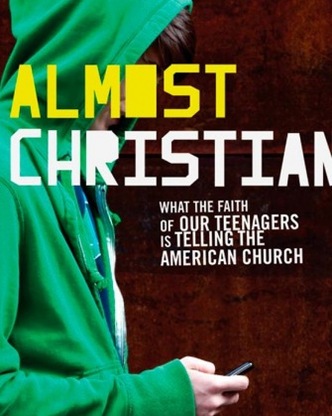
I recently finished Almost Christian: What the Faith of Our Teenagers Is Telling the American Church (OUP, 2010) by Kenda Creasy Dean, a professor at the Princeton Theological Seminary. Chapter 3, entitled “Mormon Envy,” naturally attracted my attention. Almost Christian relies in large part on data gathered by the National Study of Youth and Religion and on an earlier book presenting results from that sociological study, Soul Searching: The Religious and Spiritual Lives of American Teenagers (OUP, 2005). But Dean’s interest is more in what the results mean for youth ministers of mainline Protestant denominations. The news is not good,… Read More
-
•
•
44 responses
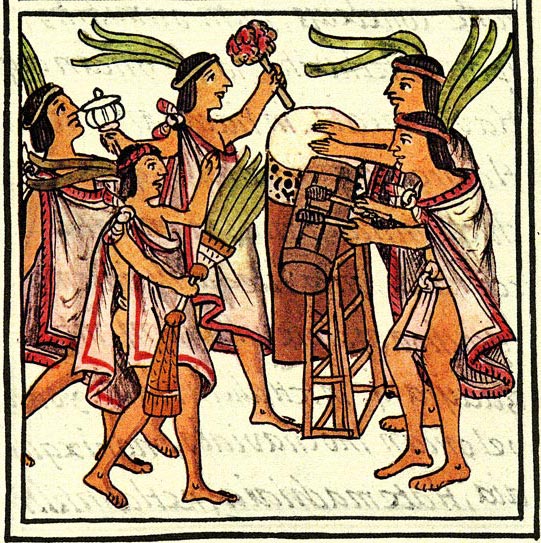
I was recently called to teach the 10 & 11 year olds in Primary. They’re a great class — smart kids and good energy. It’s been a long time since I’ve had the opportunity to enjoy listening to (and singing) the Primary songs. Last week we sang every kid’s favorite Primary standby, “Book of Mormon Stories” (well, it’s either that, “Popcorn Popping”, or “The Oxcart”…I think we sang “The Oxcart” as our opening song for every FHE for eight years straight). Everyone was doing the hand motions, but when we got to, “are about the Lamanites in ancient history,” I… Read More
-
•
•
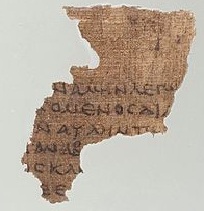
Matthew 2 Verse 1: Who were the wise men? The phrase “wise men” is a somewhat odd translation of the Greek word magoi, “astrologers.” It is because of this word that sometimes we refer to the wise men as “magi.” We get the word “magician” from magoi. “The east” may refer to Mesopotamia, the center of astronomical studies at the time. Compare Numbers 24:17, Psalms 72:10-11, and Isaiah 60:1-7. What do such verses suggest to us about the wise men? Why does Matthew tell us about the homage paid to Jesus by the wise men, but Luke tells us about… Read More
-
•
•
3 responses
A few months ago I spoke at a conference at St. John’s University Law School. The conference theme was same-sex marriage, and my own talk was a largely descriptive account of LDS church statements and actions on the topic. I used a short set of powerpoint slides to cover the basic facts. Since then, several people have expressed interest in seeing the slides, so I just posted them online — they’re available here, if you’d like to take a look. Any comments are welcome. (And just to reiterate, these are pretty basic. If you’ve followed the topic in any depth… Read More
-
•
•
14 responses
When I looked at the results of voting for the Baseball Hall of Fame, I was somewhat surprised that two LDS players were still getting enough votes to stay on the list for next year, even though they haven’t yet been selected. And one of the players looks like he may eventually be selected — perhaps even next year. Read More
-
•
•
130 responses

Looking back at last year’s MOTY post, I came across a comment I had not seen before. Having been raised hearing about the vast differences between communism and the United Order — and how communism was actually a counterfeit of God’s community — I was surprised that the comparison was being made. This was coupled with a discussion I had two days ago with Belinda, one of my children attending BYU. She just started a church history class and we were talking about the first chapter in her text. It discusses the divine nature of the founding of the United… Read More
-
•
•
18 responses

In the introduction to his Faith, Philosophy, Scripture (Neal A Maxwell Institute, 2010), Jim Faulconer gives us a kind of typology of religious subjects. Imagining the different kinds of responses he might get to the difficulty of his philosophically inclined essays, he picks out four basic types. I. Typology 1. Those who enjoy a kind of childish naivete. Those with childish faith will find what I say difficult because it makes the obvious difficult. They are likely to be bored or, at best, indulgent of me, and their reaction is the right reaction. I have nothing to say to those who are naive… Read More
-
•
•
One response
This summer Richard Bushman and Terryl Givens will lead a seminar on “The Gold Plates as Cultural Artifact” (applications are due February 15th). What have the gold plates meant for you? For me, one of the amazing things about the gold plates is just how powerfully they convey the transcendent value of the scriptures written on them. I am so used to the idea of the gold plates now that I don’t think much about this, but when I was a kid, it made an incredible impression to know that the Book of Mormon had been written on gold plates.… Read More
-
•
•
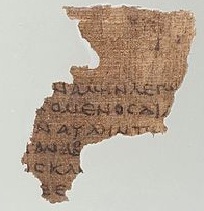
We are all familiar with these chapters, so familiar that I suspect we often read them or hear them read without paying a lot of attention—if we read these chapters at all. It is as if we go on automatic pilot when we they come up. However, there is a great deal going on in them. Matthew 1 Verses 1-16: It is clear that Matthew is not giving an exact genealogy. For example, he tells us that there were fourteen generations between each of the three important events in Israel’s history—from Abraham, to David, to the Babylonian captivity, to the… Read More
-
•
•
18 responses
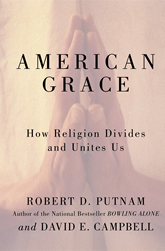
Here is Part II of our 12 Questions interview with David E. Campbell, co-author of American Grace: How Religion Divides and Unites Us (see here for Part I). In this half of the interview Campbell answers questions related specifically to his and Robert Putnam’s research concerning Mormonism. 1. Mormons feature prominently in this book. I’m biased to say that this is because, as you state on page 15, Mormonism is a “highly distinctive tradition[] that, because of [its] size, [is] often neglected in analyses of the American religious environment.” Despite our currently being in “the Mormon moment,” however, I suspect… Read More
-
•
•
107 responses
This post opens the voting for Mormon of the Year. Votes will be taken until midnight Eastern Time on Saturday, January 8th, at which time the voting will close. The voting mechanism will attempt to restrict votes to one per person. The order of the choices is set at random, and is different each time the form is presented. THE WINNER OF THE ONLINE VOTE IS NOT NECESSARILY THE MORMON OF THE YEAR!!! Read More
-
•
•
16 responses
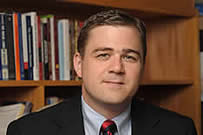
American Grace: How Religion Divides and Unites Us by Robert D. Putnam and David E. Campbell is deservedly receiving a great deal of attention. It is undoubtedly the most comprehensive and significant sociological examination of religion in America to be published in decades, and perhaps ever. Aside from the sheer mass of sociological data that this book makes available in a magnificently readable format (the book is page turner), the book is also a tour de force of sociological analysis and interpretation. People in all fields related to religion in America are giving careful attention to this very important book.… Read More
-
•
•
14 responses
Times and Seasons wishes all of our readers a happy and rewarding 2011. Here at T&S, we have some new 12 Questions features and the usual array of talented guest bloggers lined up for 2011. But first a look back at T&S 2010, with favorite posts from most of our permanent bloggers. Read More
-
•
•
41 responses

Actually, that’s exactly what just happened. Sixty-three House seats changed hands in November, governors got voted in and out of office, statewide propositions got passed and defeated—without a single post, let alone an old-fashioned righteous flamewar, on the Mormon blogs I read regularly. Read More
-
•
•
9 responses

Of his awakening, Dogen says, “I came to realize clearly that mind is no other than mountains and rivers, the great wide earth, the sun, the moon, the stars.” Tinged with enlightenment, you see what Dogen saw: that life is borrowed and that mind itself is mooched. Every day you’ll need something old, something new, something borrowed, and something blue. Mind borrows mountains and rivers, earth, sun, and sky. But you can’t just keep these things forever. Even if they weren’t quite what you wanted, they gave what they had and now some compensation is needed, some recompense is required.… Read More
-
•
•

Before I offer the study questions for this lesson, let me voice my objection to the format of our lesson manuals. They treat the Gospels as if the best way to understand them is to harmonize them, as if they are each histories of the life of Jesus rather than four different testimonies—for different audiences and for different purposes—of who Jesus is, the Messiah. That’s a little bit like taking a particular version of President Monson’s testimony, and one of President Eyring’s, and one of President Uchtdorf’s and pasting them together where they speak of similar things to make one… Read More
-
•
•
29 responses
On Friday night, I was heading up the Snake River Canyon toward Jackson Hole, with snow falling gently through the darkness. At the entrance to the canyon, the following message was brightly displayed on a portable electronic sign: “Slippery spots: Turn off cruise control.” I have never seen that particular message on a traffic sign before. Good advice, of course — you’ll live longer if you are thinking (cruise control off, brain on) while driving on slick roads. Read More
-
•
•
This is the time of year for Christmas devotions. This year my thoughts have been on the impulse to serve the needy that we have at Christmas. We don’t have it at Easter. My thoughts have also been on the Christ child. The religious significance of the grown Christ, on the cross and in the garden, is obvious. But what did Christ do for us as a bare baby? Read More
-
•
•
7 responses
FHEs have been somewhat pathetic in the Smith household of late; Read More
-
•
•
3 responses

Earth is stratified time. Use some wind, water, and pressure. Sift it, layer it, and fold it. Add an inhuman number of years. Stack and buckle these planes of rock into mountains of frozen time. Use a river to cleave that mountain in two. Hide hundreds of millions of purloined years in plain, simultaneous sight as a single massive bluff. It’s a good trick. Bodies, made of earth, are just the same: in my face, unchosen, generations of people are stratified in plain, simultaneous sight. My father’s nose, my grandfather’s ears, my mother’s wink, the lines my kids have etched… Read More
-
•
•
13 responses
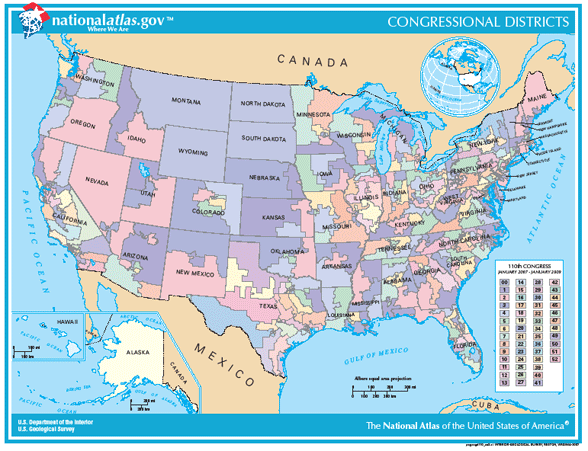
On December 21st the U.S. Census Bureau will release the initial results of the 2010 census and indicate which states will gain members of Congress and which states will lose members of Congress. From the estimates made by third parties, it seems likely that the number of Mormons in Congress will increase as a result. Read More
-
•
•

This is a sketch of the history between the fall of Israel and the New Testament. It may be helpful for understanding what is going on in the New Testament confrontations between Jesus and others and in understanding the tensions in Israelite society in Jesus’ day. Jewish history between the Old and New Testaments 606 The fall of Nineveh, capital of Assyria. Babylon becomes the major power. Daniel and others are taken to Babylon from Israel. 604 Nebuchadnezzar is king of Babylon. 598 Judah’s king, Jehoiachin, and the prophet Ezekiel (with thousands of others) are carried captive into Babylon. Lehi… Read More
-
•
•
10 responses

Tis the season for anxious engagement! Toward this end I want to highlight some charitable organizations that are absolutely worthy of your donations. Read More
-
•
•
15 responses

